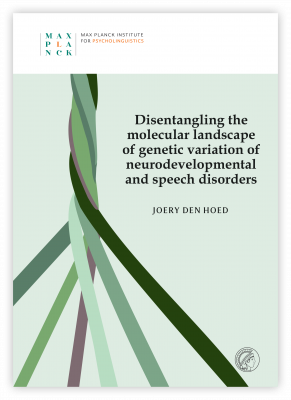Joery den Hoed defends thesis on 14 November

The first gene to be implicated in a severe inherited form of childhood speech disorder was FOXP2, identified more than twenty years ago. With dramatic advances in reading DNA sequences across a person's entire genome, more and more genes are now being implicated in developmental disorders involving speech problems. These include genes (such as SETBP1 and CHD3) with important roles in regulating early brain development. While DNA screening studies indicate that disruptions of an array of different genes can derail speech development, they also show that different genetic variations disturbing the same gene may result in highly variable clinical outcomes. To better understand the relationships between gene disruptions and severe speech problems, this thesis describes multiple approaches with laboratory-based human cell culture systems that are used to shed light on effects of the relevant genetic variants on biological pathways, illuminating how these relate to neurodevelopmental disorder.
Share this page